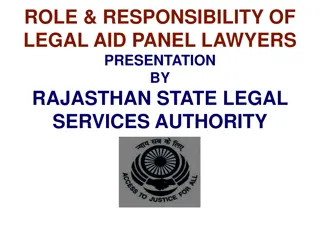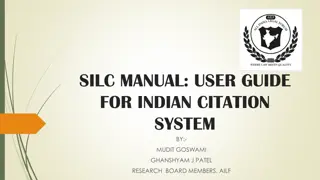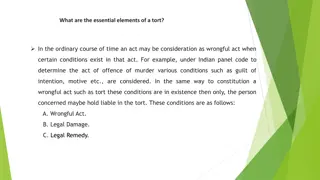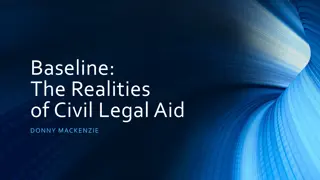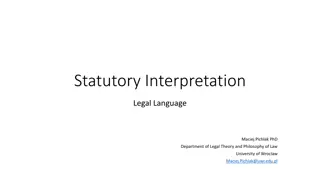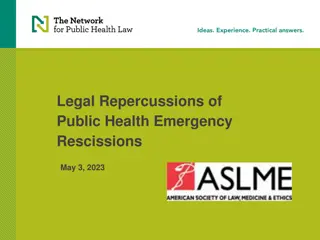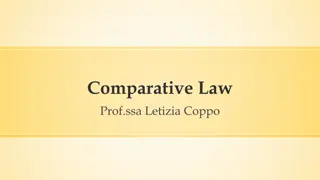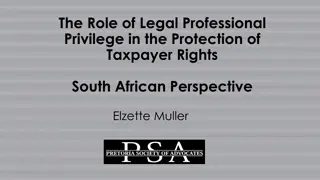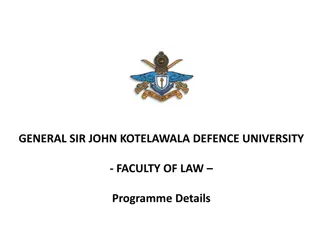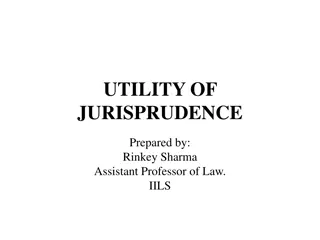Understanding Legal Report Writing Methods
A report is an organized document presenting information, analysis, and evidence to address a specific issue. In legal methodology, reports play a crucial role in documenting judicial decisions, research outcomes, and legal principles. This article explores the types of reports, the research process, and the significance of legal reports in preserving and communicating legal knowledge.
Download Presentation

Please find below an Image/Link to download the presentation.
The content on the website is provided AS IS for your information and personal use only. It may not be sold, licensed, or shared on other websites without obtaining consent from the author. Download presentation by click this link. If you encounter any issues during the download, it is possible that the publisher has removed the file from their server.
E N D
Presentation Transcript
REPORT WRITING ( UNDER LEGAL METHODOLOGY ) BY J.N. JAYASHREE SHIVANI.
What is a report? A report is written for a clear purpose and to a particular audience. Specific information and evidence are presented, analyzed and applied to a particular problem or issue. The information is presented in a clearly structured format so that the information is easy to follow and understand for the reader.
Every research leads to the prepartion of a report!
OVERVIEW OF RESEARCH PROCESS_ In every research process, these general steps are followed by the researcher : Identifying the problem or the research topic. Reviewing the literature. Collect analyze and interpret the data. Lastly, writing an report based on the findings.
TYPES OF REPORTS Reports are of different types depending upon its area, purpose and the approach. But in the legal field, they are broadly classified into two types: Legal report A law report is a record of a judicial decision on a point of law which sets a precedent Research report Research report is a medium to communicate research work with relevant people. It is also a good source of preservation of research work for the future reference.
LEGAL REPORT In a legal report, not all decisions taken in a court of law is set as a precedent, A decision is only reportable if it lays down a new principle of law, or changes or clarifies the existing law. It is therefore important to distinguish between those cases which do indeed lay down, change or clarify the law and which therefore need to be reported and those which don t have to be reported. Legal report must ensure that an reportable case clearly states all the relevant information so that it can be relied upon by students, teachers, practitioners and judges as an accurate and authoritative statement of principle of law (the ratio decidendi ) on which the case was decided.
Full text law reports incorporate the full judgment(s) given by the court, together with a summary of the case known as the headnote and a number of other elements. Types of law report Summary reports also known as case summaries, digests, case notes etc., consist of summaries or abridgements of the judgment, and are presented in a less formal way than a full text law report. However, for very good reasons full text reports enjoy more status and value than the summary report.
RESEARCH REPORT A report which deals specifically with a legal problem is said to be a legal research report. Such a report is not a complete description of the work done by the researcher. Research report is a research document that contains basic aspects of the research project . It is only a brief statement of the most significant facts that are necessary for the understanding the generalizations drawn by the investigator.
GENERAL GUIDELINES FOR REPORT WRITING 3 1 2 Organizing of research material Continuous report reflective thinking Researcher must constantly reflect on the material and the data collected for a more comprehensive legal research report. Knowledge of the research material Adequate knowledge about the area of study is very important. It is the backbone of the entire research process. Hence, very crucial. 4 Data and material collected along the process must be sorted out properly for their proper and efficient use. 5 6 Preparation of Footnotes and headnotes Preparation of the final bibliography From the very beginning of the research, the researcher must maintain a bibliography of the literature read, consulted and incorporated in the research process. Rewrite and polish the rough drafts Careful revision of the drafts helps in checking the development of the arguments in the report and representation of the material as a whole. The researcher must whenever citing another author s work make due footnotes or endnotes to add authenticity and reference to the report.
Hurdles vsolutions SOLUTIONS HURDLES 1. Find a doable topic. keeping in mind the audience. 1.Wrong choice of research topic 2. Wrong methodology leads to wastage of resources 2. Spend more time on analyzing the available options and choose wisely. 3. Wrong interpretation of the law can lead to serious problems. 3. Carefully identify the underlying principles of law. 4. Researcher s ignorance about the current or the changed law 4. This is no excuse. The researcher must be aware of all the changes taking place in the legal framework. It is a very important quality for an researcher.
Therefore, the key to effective legal research is to develop a good research tactic and following a effective approach. END











